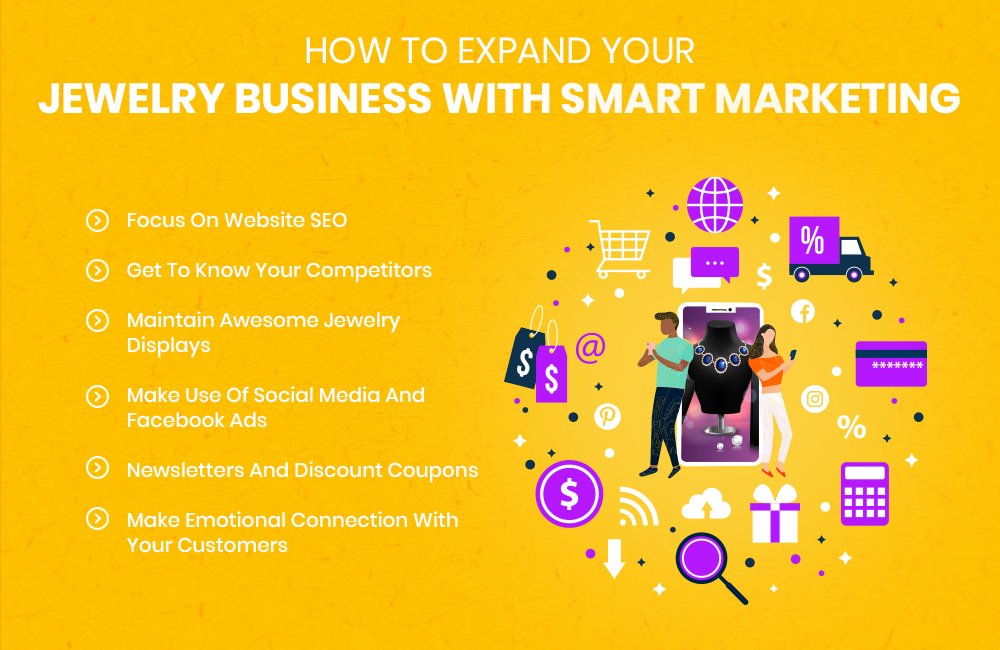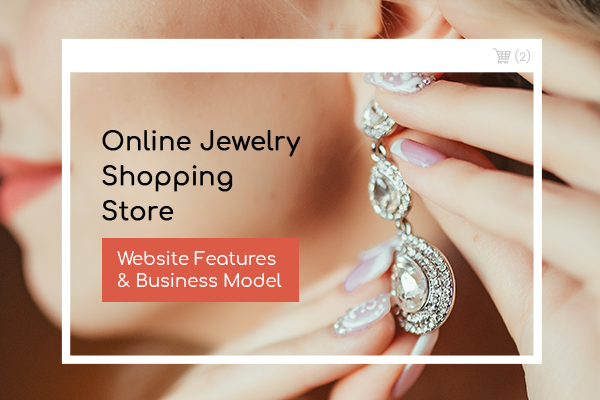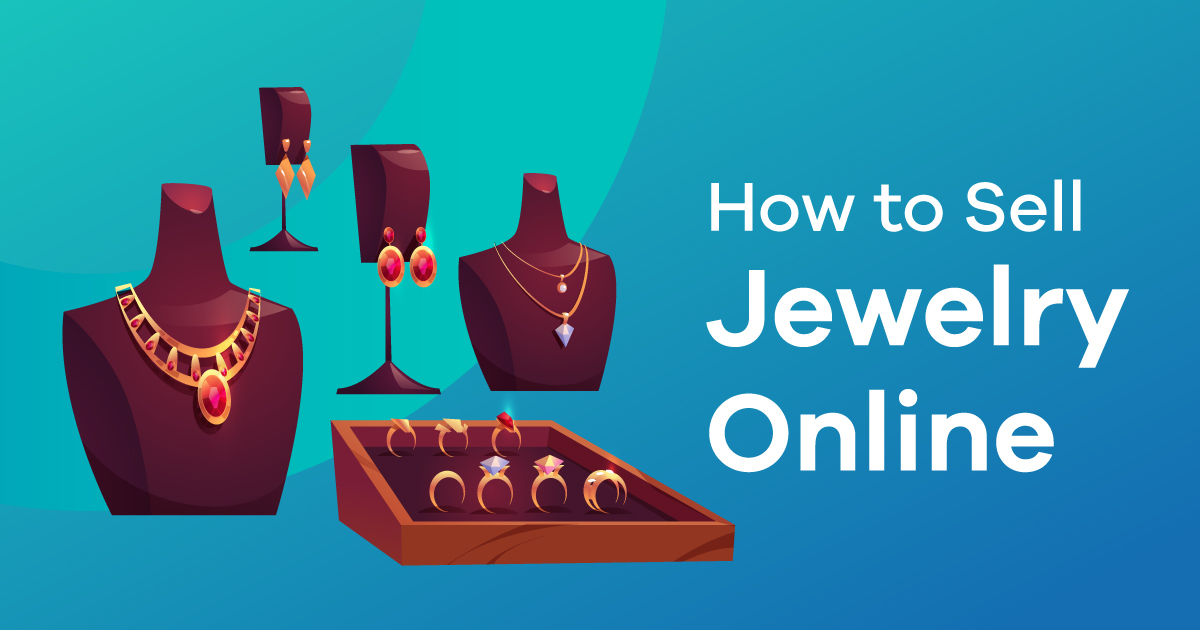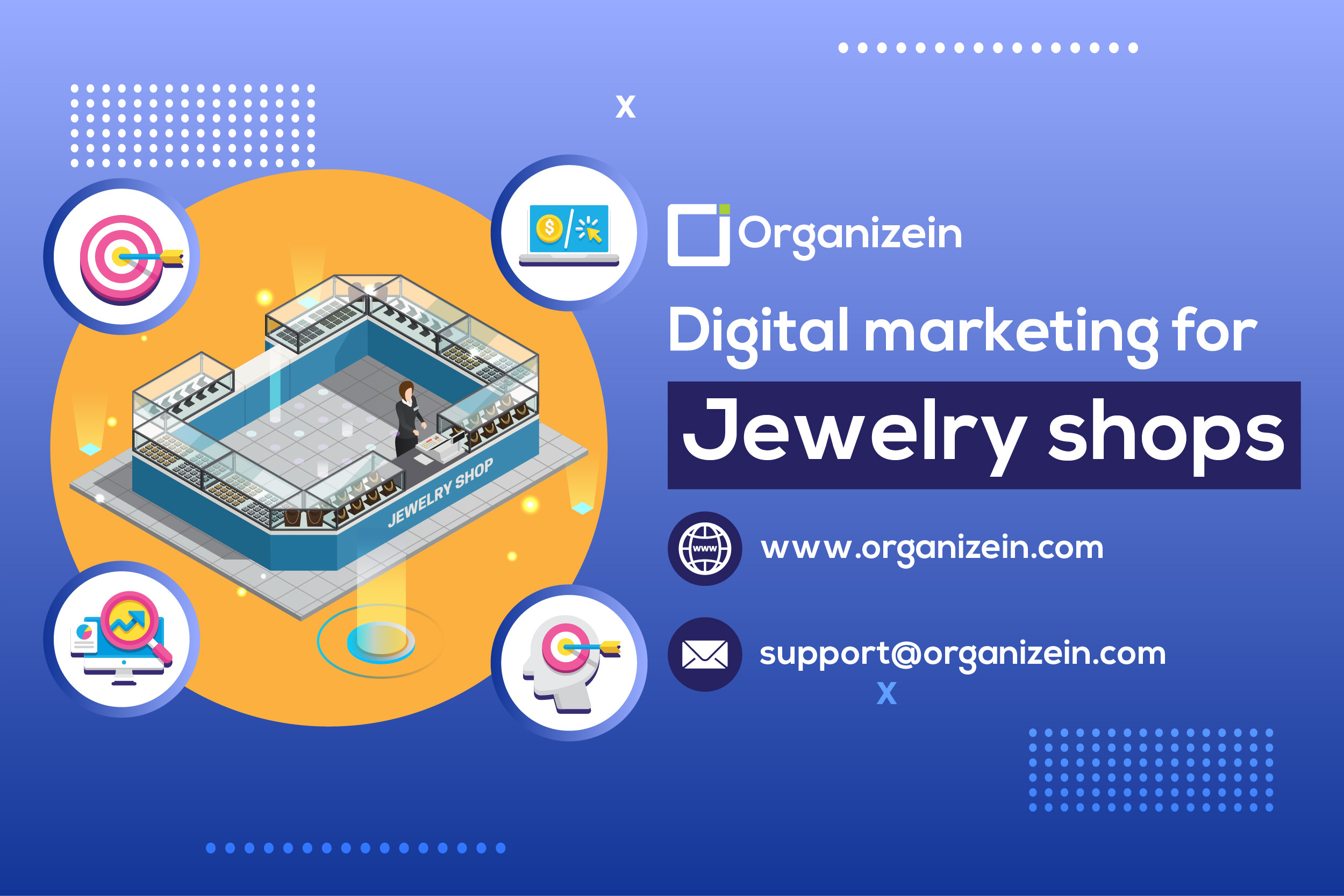Expanding Your Jewelry Reach: A Guide To Online Marketplaces And Platforms
Expanding Your Jewelry Reach: A Guide to Online Marketplaces and Platforms
Related Articles: Expanding Your Jewelry Reach: A Guide to Online Marketplaces and Platforms
Introduction
With enthusiasm, let’s navigate through the intriguing topic related to Expanding Your Jewelry Reach: A Guide to Online Marketplaces and Platforms. Let’s weave interesting information and offer fresh perspectives to the readers.
Table of Content
Expanding Your Jewelry Reach: A Guide to Online Marketplaces and Platforms

In today’s digital age, the jewelry industry has embraced the vast potential of online marketplaces. Selling jewelry online offers a multitude of advantages, allowing artisans, designers, and retailers to reach a wider audience, expand their customer base, and potentially increase sales. This comprehensive guide explores the diverse landscape of online platforms where jewelry can be sold, providing insights into their unique features, target audiences, and overall suitability for different jewelry businesses.
Understanding the Online Jewelry Market
The online jewelry market is a vibrant and competitive landscape, offering numerous avenues for sellers to showcase their creations. However, navigating this space requires careful consideration of factors such as target audience, pricing strategies, marketing efforts, and platform-specific policies.
Types of Online Platforms for Selling Jewelry
The online jewelry market encompasses a wide array of platforms, each catering to specific needs and preferences. These platforms can be broadly categorized as follows:
1. General E-commerce Marketplaces:
- Etsy: This platform is renowned for its handcrafted and vintage goods, making it an ideal choice for independent jewelry makers and artisans. Etsy boasts a strong community of buyers seeking unique and personalized pieces.
- Amazon Handmade: Similar to Etsy, Amazon Handmade focuses on handcrafted items, providing access to Amazon’s vast customer base. However, it often requires a higher level of professionalism and product quality.
- eBay: While known for its diverse range of products, eBay also offers a dedicated section for jewelry. It can be a good option for sellers with a wide variety of inventory, including vintage or estate jewelry.
2. Niche Jewelry Marketplaces:
- Artfire: This platform specializes in handcrafted and artistic jewelry, offering a curated selection of high-quality pieces. It is particularly suitable for artists and designers seeking a discerning audience.
- Society6: Focusing on art and design, Society6 allows artists to sell their jewelry alongside other creative products. It offers print-on-demand services, making it convenient for smaller-scale jewelry businesses.
- Gemvara: This platform caters to customers seeking custom-designed jewelry, allowing buyers to personalize their pieces with specific gemstones and metals. It provides a unique selling proposition for designers specializing in personalized creations.
3. Dedicated Jewelry Platforms:
- Shopbop: This platform is known for its curated selection of contemporary and designer jewelry, attracting a fashion-conscious clientele. It is well-suited for established jewelry brands or designers with a strong aesthetic.
- Revolve: Similar to Shopbop, Revolve focuses on high-end fashion and accessories, including jewelry. It offers a luxurious shopping experience and attracts a discerning audience.
- Farfetch: This platform features a global selection of luxury fashion and accessories, including jewelry from renowned brands and emerging designers. It provides access to a sophisticated and international customer base.
4. Social Media Platforms:
- Instagram: This platform is highly visual, making it ideal for showcasing jewelry. Instagram allows sellers to build a following, engage with potential customers, and drive traffic to their online stores or websites.
- Pinterest: Known for its visually appealing content, Pinterest is a powerful tool for jewelry marketing. Sellers can create boards showcasing their products, inspiring potential buyers and driving traffic to their websites or online stores.
- Facebook: While not primarily a visual platform, Facebook allows jewelry businesses to create pages, engage with customers, and run targeted advertising campaigns. It can be used to build brand awareness and generate leads.
5. Personal Websites and Online Stores:
- Shopify: This platform provides a user-friendly interface for creating professional online stores. It offers a range of customizable templates, marketing tools, and payment gateways, making it a comprehensive solution for selling jewelry online.
- Wix: Similar to Shopify, Wix offers website building services, including e-commerce functionality. It allows businesses to create their own branded online stores with integrated payment processing.
- Squarespace: This platform provides beautiful and customizable templates for creating online stores. It offers a user-friendly interface and integrates with various payment gateways and marketing tools.
Factors to Consider When Choosing a Platform
The optimal platform for selling jewelry depends on several factors, including:
- Target Audience: Consider the demographics and preferences of your target audience. Some platforms cater to specific niches, such as handcrafted jewelry or high-end designer pieces.
- Pricing Strategy: Different platforms have different fee structures and commission rates. Evaluate the costs associated with each platform and factor them into your pricing strategy.
- Marketing and Promotion: Some platforms offer built-in marketing tools and advertising options, while others require you to manage your own marketing efforts.
- Customer Service: Consider the level of customer support provided by each platform. Some offer dedicated customer service teams, while others rely on self-service options.
- Product Photography and Presentation: The quality of your product images and descriptions is crucial for attracting customers. Ensure the platform allows you to showcase your jewelry effectively.
- Shipping and Fulfillment: Determine how each platform handles shipping and fulfillment. Some platforms offer integrated shipping solutions, while others require you to manage these aspects independently.
Benefits of Selling Jewelry Online
Selling jewelry online offers numerous advantages, including:
- Global Reach: Online platforms break down geographical barriers, allowing you to reach a wider audience beyond your local market.
- Increased Visibility: Online marketplaces and platforms provide significant visibility, exposing your jewelry to a larger pool of potential customers.
- Convenience for Buyers: Online shopping offers convenience and accessibility, allowing customers to browse and purchase jewelry at their own pace and from anywhere in the world.
- Lower Overhead Costs: Selling online can reduce overhead costs associated with physical retail stores, such as rent and utilities.
- Data Analytics: Online platforms provide valuable data analytics, allowing you to track sales performance, customer behavior, and marketing effectiveness.
- Flexibility and Scalability: Online businesses offer flexibility and scalability, allowing you to adjust your inventory, pricing, and marketing strategies as needed.
Tips for Success in Online Jewelry Sales
To maximize your success in selling jewelry online, consider these tips:
- High-Quality Product Photography: Invest in professional product photography that showcases your jewelry in its best light. Use high-resolution images with clear lighting and a clean background.
- Compelling Product Descriptions: Write detailed and engaging product descriptions that highlight the unique features and benefits of your jewelry. Use relevant keywords to improve searchability.
- Competitive Pricing: Research your competitors and set competitive prices for your jewelry. Consider factors such as materials, craftsmanship, and market demand.
- Excellent Customer Service: Provide prompt and responsive customer service to build trust and loyalty. Address customer inquiries and concerns promptly and professionally.
- Effective Marketing Strategies: Utilize online marketing strategies, such as social media marketing, search engine optimization (SEO), and email marketing, to reach your target audience.
- Secure Payment Processing: Ensure you have secure payment processing options in place to protect both you and your customers.
- Compliance with Regulations: Familiarize yourself with relevant regulations and policies related to online jewelry sales, such as consumer protection laws and shipping regulations.
FAQs About Selling Jewelry Online
1. What are the fees associated with selling jewelry online?
Fees vary depending on the platform. Some platforms charge listing fees, commission fees on sales, or a combination of both. Others may offer free listings but charge a percentage of each sale.
2. How do I protect my intellectual property when selling jewelry online?
You can protect your intellectual property by registering trademarks for your brand or designs. You can also watermark your images and provide clear terms of use on your website or online store.
3. How do I handle shipping and fulfillment?
Some platforms offer integrated shipping solutions, while others require you to manage shipping independently. Research shipping options and choose a method that suits your needs and budget.
4. How do I build trust and credibility with potential customers?
Build trust by providing high-quality products, accurate descriptions, and excellent customer service. Encourage customer reviews and testimonials to showcase positive experiences.
5. How do I market my jewelry online?
Utilize social media marketing, search engine optimization (SEO), email marketing, and paid advertising campaigns to reach your target audience.
Conclusion
Selling jewelry online presents a dynamic and rewarding opportunity for artisans, designers, and retailers. By carefully considering the factors discussed in this guide and embracing best practices for online sales, jewelry businesses can tap into a global marketplace, expand their reach, and enhance their overall success. The key lies in selecting the right platform, crafting compelling product presentations, providing excellent customer service, and implementing effective marketing strategies. With a strategic approach, the online jewelry market can become a powerful engine for growth and prosperity.








Closure
Thus, we hope this article has provided valuable insights into Expanding Your Jewelry Reach: A Guide to Online Marketplaces and Platforms. We appreciate your attention to our article. See you in our next article!
You may also like
Recent Posts
- The Enduring Appeal Of XP Jewelry: A Timeless Symbol Of Achievement
- A Global Tapestry Of Adornment: Exploring World Collections Of Jewelry
- The Evolution Of A Brand: Understanding The Name Change Of Lola Rose Jewellery
- Navigating The UK’s Jewelry Wholesale Landscape: A Comprehensive Guide
- The Allure Of Effy Jewelry: Unveiling The Reasons Behind Its Premium Pricing
- The Enduring Appeal Of Gold Jewelry: A Timeless Investment
- The Art Of Harmony: Elevating Your Style Through Accessory Coordination
- The Comprehensive Guide To Wholesale Jewelry Supplies Catalogs: A Treasure Trove For Jewelry Makers And Businesses
Leave a Reply